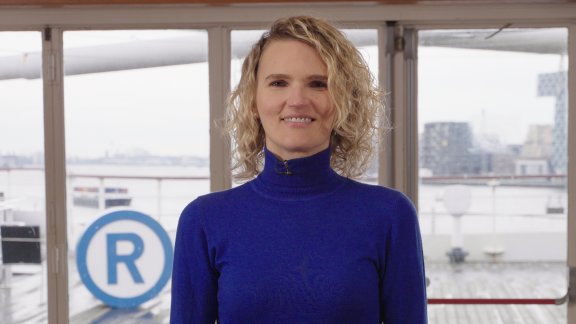A domain name is a unique name on the internet. It is usually used for a website, but you can also apply for a domain name for a personal e-mail address. The domain name address consists of a number: the IP address. The domain name system translates this IP address into a domain name.
A domain name consists of two parts separated by a full stop. The first part is the name. The second part is the extension. The extension indicates the country from which the domain name comes (.be for Belgium, .nl for Netherlands and .lu for Luxembourg), or indicates the intended use of the domain name (.info for public-sector information pages or .biz for commercial organisations). You can only choose from extensions that have been defined by ICANN, the organisation that manages these extensions. 
A domain name must satisfy the general and technical conditions applied by the body that issues the domain name. In Belgium, the relevant body is DNS Belgium, in the Netherlands, SIDN, and in Luxembourg, DNS Luxembourg.
What does it entail?
A domain name is the simplest way of making your website easy to find, not just by your customers and potential customers, who you want to remember the name, but also by their devices, i.e. PCs, laptops, tablets and smartphones. Every domain name has an IP address (number). Computers use these IP addresses to locate and communicate with each other online and, so, enable your customers to find and view your website. IP addresses are not used directly by most people, because a domain name is much easier to remember.
Make sure that your domain name does not infringe on an existing trade name or registered trademark. Read our article on monopoly on (trade)names
How long is it valid?
You cannot buy a domain name, but you can register one. If you do, you are given the right to use the domain name for a period of one year. The name is not your property. An application for a domain name is processed by a registrar.
A domain name is valid for as long as you satisfy the conditions of registration. These conditions may vary per registrar.
Did you know that...?
- A domain name is unique and can only be registered once. The 'first come, first served' principle applies.
- Anyone, whether a person or a company, can register a domain name.
-
A .be or .nl domain name cannot be shorter than two or longer than 63 characters.
Is my domain name still available?
To ensure that you are not infringing on another domain name, you need to know whether your chosen domain name is still available. You can look this up via the bodies that issue domain names. In Belgium, the relevant body is DNS Belgium, in the Netherlands, SIDN, and in Luxembourg, DNS Luxembourg.
When entering the search terms, only type in the domain name without the 'www'. If the domain name is available, you can register it via a registrar (domain name intermediary). If the name is already in use, you can see who the holder is.
Go to the www.eurid.eu home page to check the availability of .eu domain names.
What if a domain name infringes another?
If you think someone else's domain name infringes your trade name or trademark, you can do three things:
- Reach a mutual agreement with the party concerned;
- Use a dispute settlement procedure. Depending on your domain name's extension, different bodies can provide you with help. Contact CEPANI for .be domain names, contact WIPO (World Intellectual Property Organization) via SIDN for .nl and .com domain names, and contact CAC, the Czech Arbitration Court, for .eu domain names;
- Initiate a court case.
Would you like some advice?
BOIP is an independent body. This means we cannot provide any personal advice. An external IP professional can however advise you about the best way to protect a domain name.
How is a domain name created?
A domain name is created by registering the name via a registrar.
Domain names in the Benelux
Belgium
More information about domain names in Belgium is available from the DNS website.
The Netherlands
More information about domain names in the Netherlands is available from the SIDN website.
Luxembourg
More information about domain names in Luxembourg is available from the DNS Luxembourg website.
Would you like some advice?
BOIP is an independent body. This means we cannot provide any personal advice. An external IP professional can however advise you about the best way to protect a domain name.




